Advertisement
These New England Filmmakers Are Documenting The Pandemic As It Unfolds
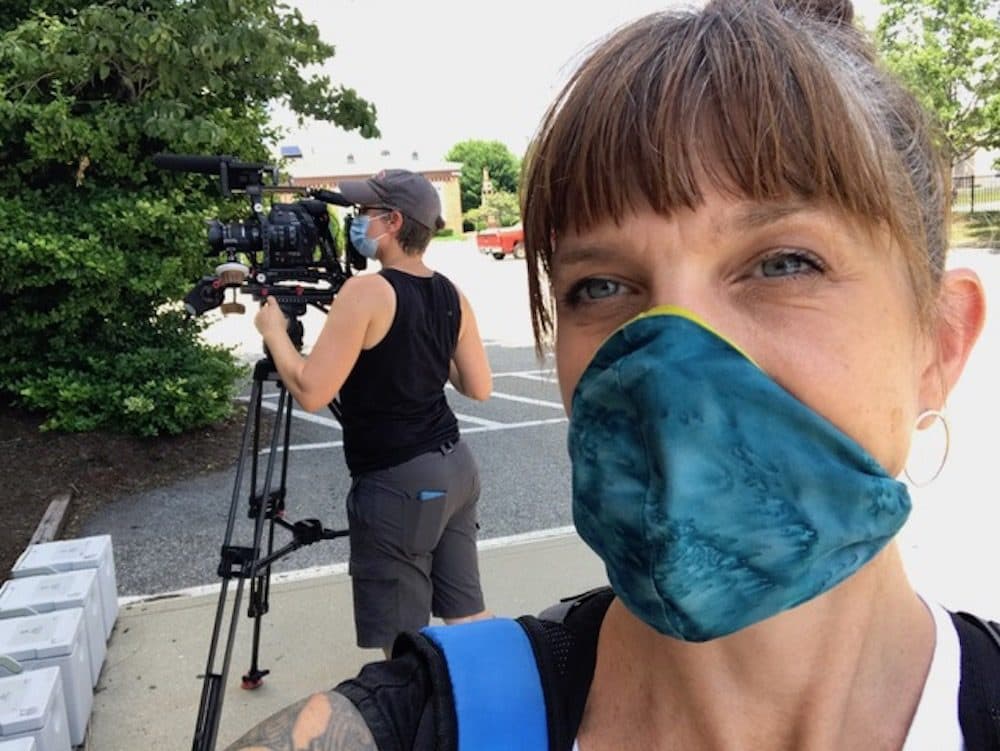
The urgency to make a record of the global COVID-19 pandemic has mobilized the region’s documentary filmmaking community. Dozens of COVID-related documentaries, created by a range of filmmakers from seasoned professionals to newcomers, are underway in and around Boston this minute. With each distinct project comes the pandemic’s baffling stamp: at once an experience shared by all yet still highly individualized.
Documentarians would add one more common denominator. “This is a COVID film, it’s going to have a COVID look,” says Sara Archambault of Providence about her new work-in-progress with Margo Guernsey of Watertown. Their project examines Rhode Island’s election process amidst high demand for mail-in ballots. Guernsey says it will be a challenge to manage the volume of ballots due to understaffing and capacity issues. The pandemic only adds to the difficulty. (Guernsey’s excellent “Councilwoman” focused on Providence City Council politics.)
It’s not safe to follow people around with a camera vérité style. Shooting interviews with masks camouflages identities and muffles audio quality. So Archambault and Guernsey are outfitting their subjects — from poll workers to state officials — with smartphones, mics and tripods. “We’re empowering them with shooting themselves,” says Archambault.
Yet who among us knows how to take anything but supremely dull cell phone videos? Guernsey describes instances of subjects not knowing what to film or when to turn the camera on or off. She says she advised one over FaceTime, “What are you doing right now? We want you to tell us in the moment what’s happening.”
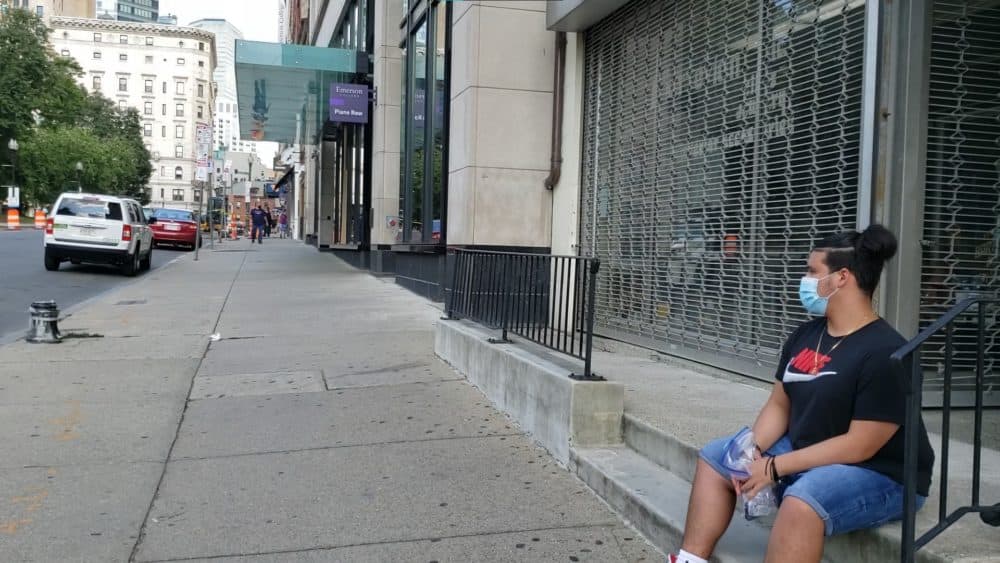
More than 20 groups of Boston teenagers who live in public housing have been similarly equipped — with smartphones and tripods — to make COVID-related documentaries through a virtual summer program, Boston Story Builder. “This whole thing could be considered a form of activism,” says participant Yosmar Melo, a senior at Henderson K-12 Inclusion School. “The majority of kids in this program are minorities, lower to middle-class,” he says, adding that more people from the program’s demographic need to be involved in the film industry.
Another participant, Boston Arts Academy senior Frida Swallow, adds a generational spin. “We are sick and tired of not having our voices get heard. I can’t just sit around and let this thing happen without saying my piece.” Both Swallow and Melo mention having significant differences in opinion with family members over assessing COVID-19 facts and risks; Melo adds that he translates important paperwork for his Spanish-speaking mother.
Swallow and Melo say their team bonded when they opened up about how the pandemic has magnified their anxieties. That’s why they decided to focus their film on the topic of mental health. They’ll likely appear in the film they are making. (A public screening is planned for Aug. 20.) Swallow envisions a shot of herself standing at the threshold of her door to the outside world, where she daily hesitates before facing the unknown.
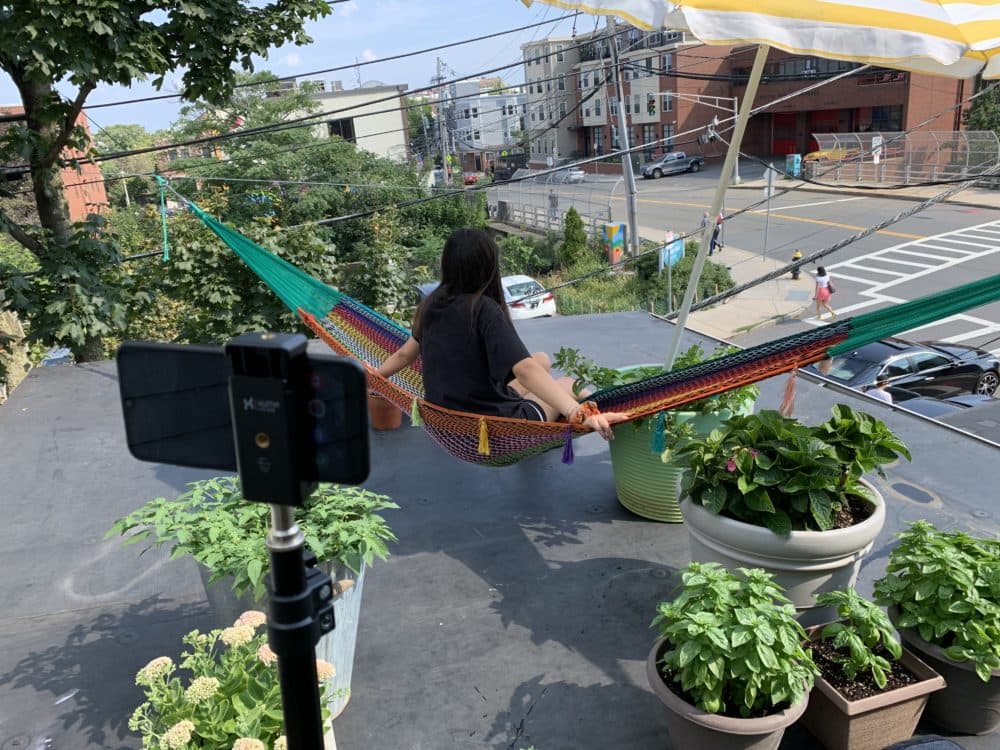
A spirit of activism also propelled filmmakers Sabrina Avilés of Roslindale and Jenny Alexander of Malden to decide to work together on a (so far) short form documentary about how COVID-19 has impacted Chelsea. While still in the early stages, conducting interviews by phone, they know Chelsea itself is a character. Alexander imagines visuals that highlight the salt piles that keep Boston streets safe in winter, tanks that fuel Logan’s jets, and warehouses that store the region’s produce, for example.
“Chelsea is an essential city,” says Avilés, who also directs the Boston Latino International Film Festival. While Chelsea received a flurry of press coverage due to the high number of cases during the peak of COVID-19, residents are still dealing with the aftermath and what’s to come, says Avilés. “People cannot pay rent. They’re at risk of being evicted.” Even still, she and Alexander are gathering stories of resilience that they want to share.
Pandemic solutions also top the list for Daniel Callahan and Daniel Villanueva of Roxbury, who are working together on “The Color of Corona.” The pair have recorded more than 50 Zoom interviews to date for what may become a series. The public story of coronavirus too often associates Black and brown people with a lack, says Callahan, or the “disproportionate negative effects.” But Callahan wants to know how people are surviving. “These are humans with lives and feelings,” he says.
Callahan describes how one woman he interviewed works in a housing development in East Boston. Though not her job, she developed a food delivery system in what had been a food desert. “We’ve got to catch this stuff while it’s happening or these things will get lost,” he says. Because communities of color have experienced some of the pandemic’s worst effects, Callahan says, “they have the key to solutions that everyone can benefit from. That’s what’s guiding us and this film.”
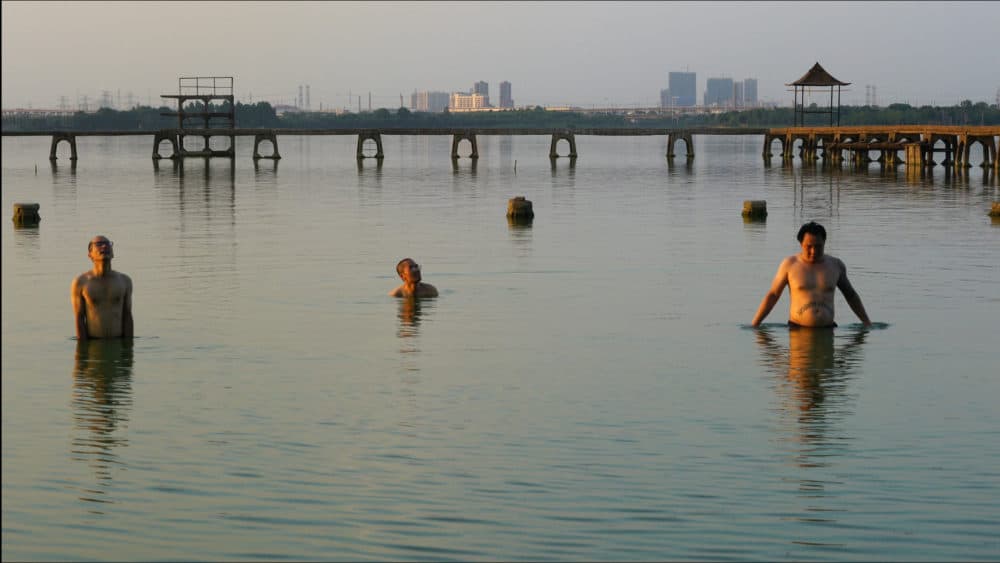
Media artist Wenhua Shi grew up in Wuhan, China, where COVID-19 was first identified, and now teaches at UMass Boston. He is working on an experimental documentary essay using footage he’s collected from past visits. “The COVID-19 situation is one of the many instances throughout the history of the city that the people of Wuhan have endured,” he wrote by email. He plans to “dive into its history in a poetic way.”
Even if subjects can be filmed in-person, maintaining a safe physical distance makes one of the most crucial elements of documentary — intimacy — nearly impossible to achieve. Jesse Epstein of Jamaica Plain jokes about imagining legendary documentarian Albert Maysles yelling at a subject, “I’m across the street with a zoom lens, tell me your secrets!” She continues imitating Maysles, “You must love people with your camera, it’s a relationship! You love them, they love you.”
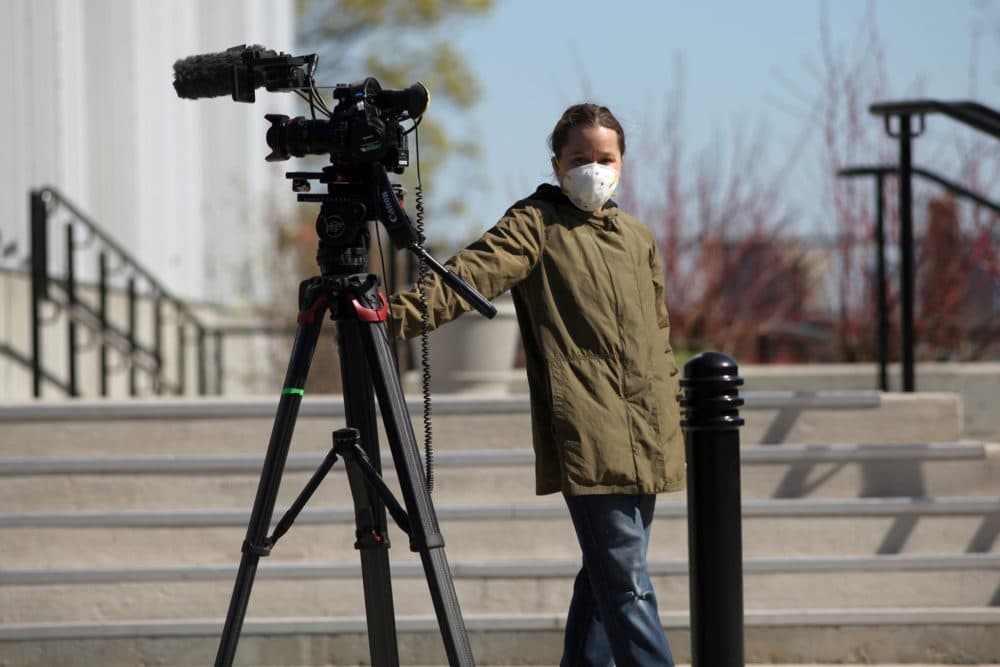
Epstein had been in production on a climate change documentary about a religious coalition formed in Lawrence in the aftermath of the 2018 gas explosions. Now it’s a COVID-19 documentary, too. She reasons that climate change and pandemics are connected yet COVID-19 has still been “a huge left hook.” She wonders, “Is this going to bring the coalition closer?”
Since March, Epstein has only gathered footage through Zoom. That changed last week when she oversaw a socially-distanced shoot of the coalition working at a food bank. She felt prepared because she learned a few do's and don'ts working on a different project. But no matter what the future holds for her documentary or the work of others, she expects “a constant conversation of what people are comfortable with.”
No matter the challenges, Archambault is confident that great work will come from this time. “We are a scrappy and entrepreneurial bunch, she says. “The way we express ourselves, in any moment of crisis, is through film. A pandemic is not going stop us from making films.”
